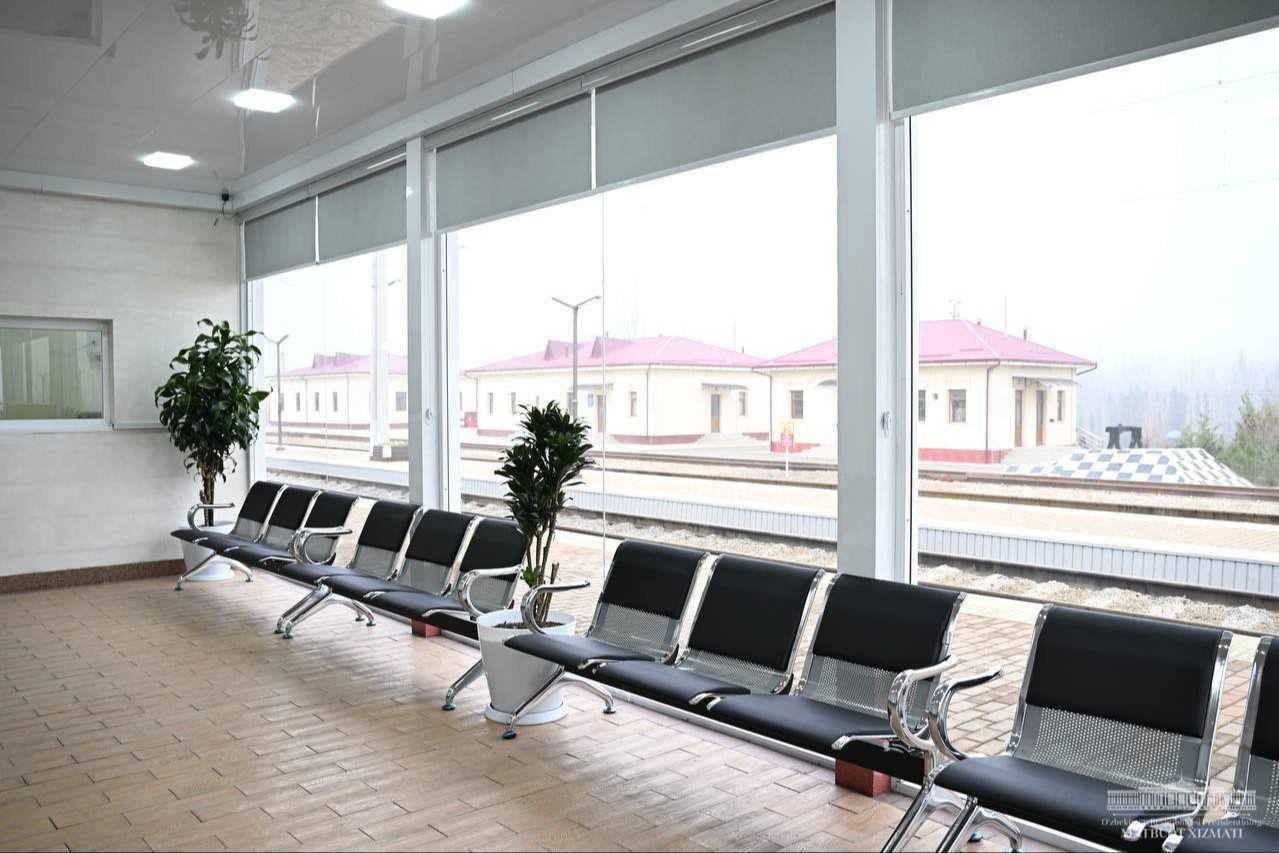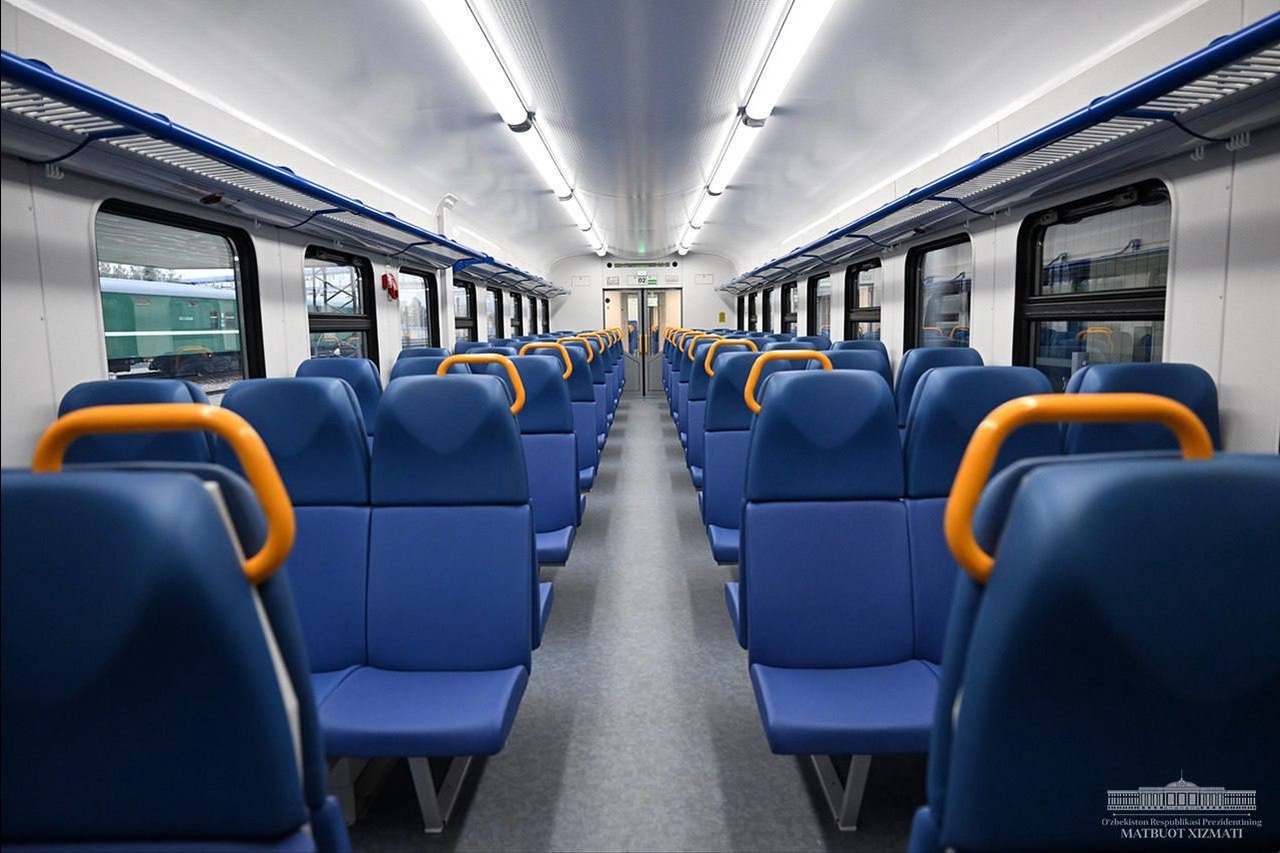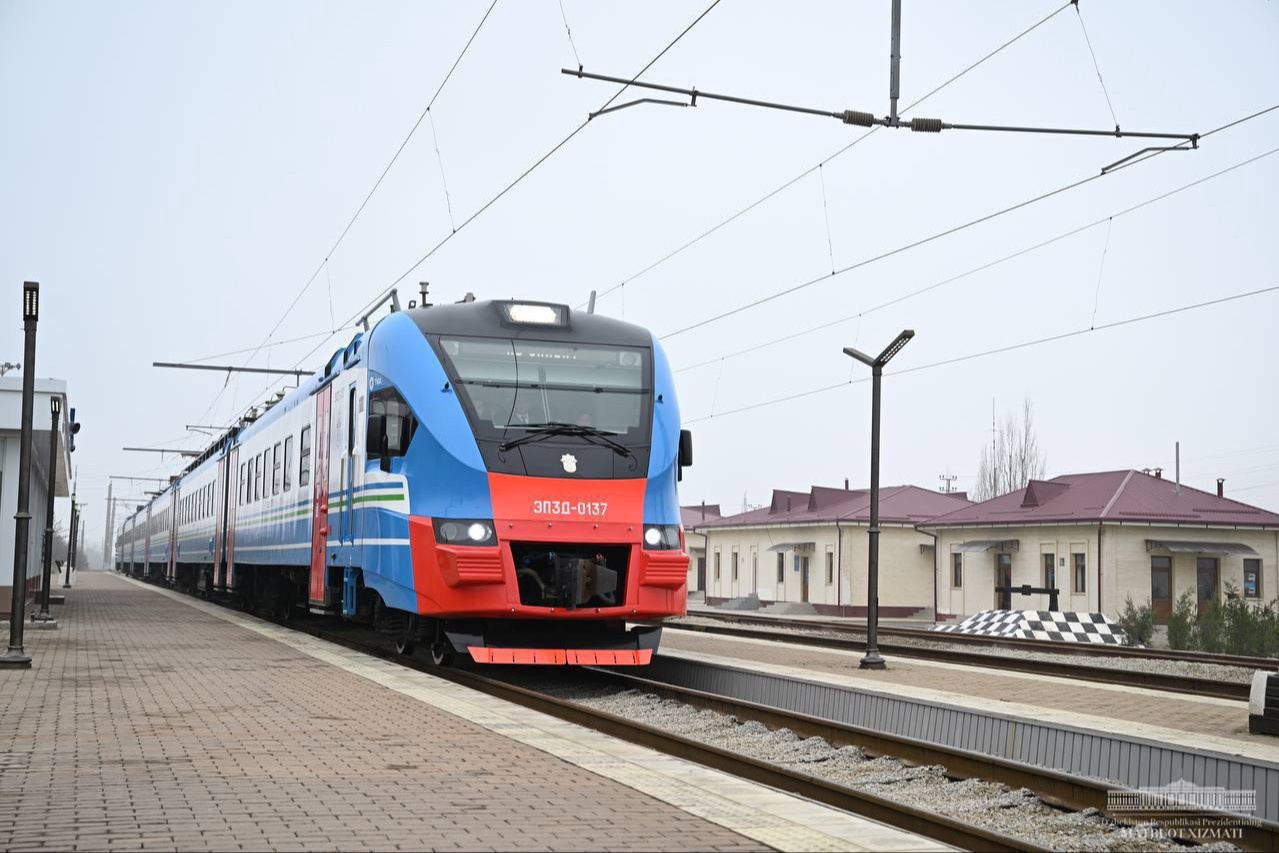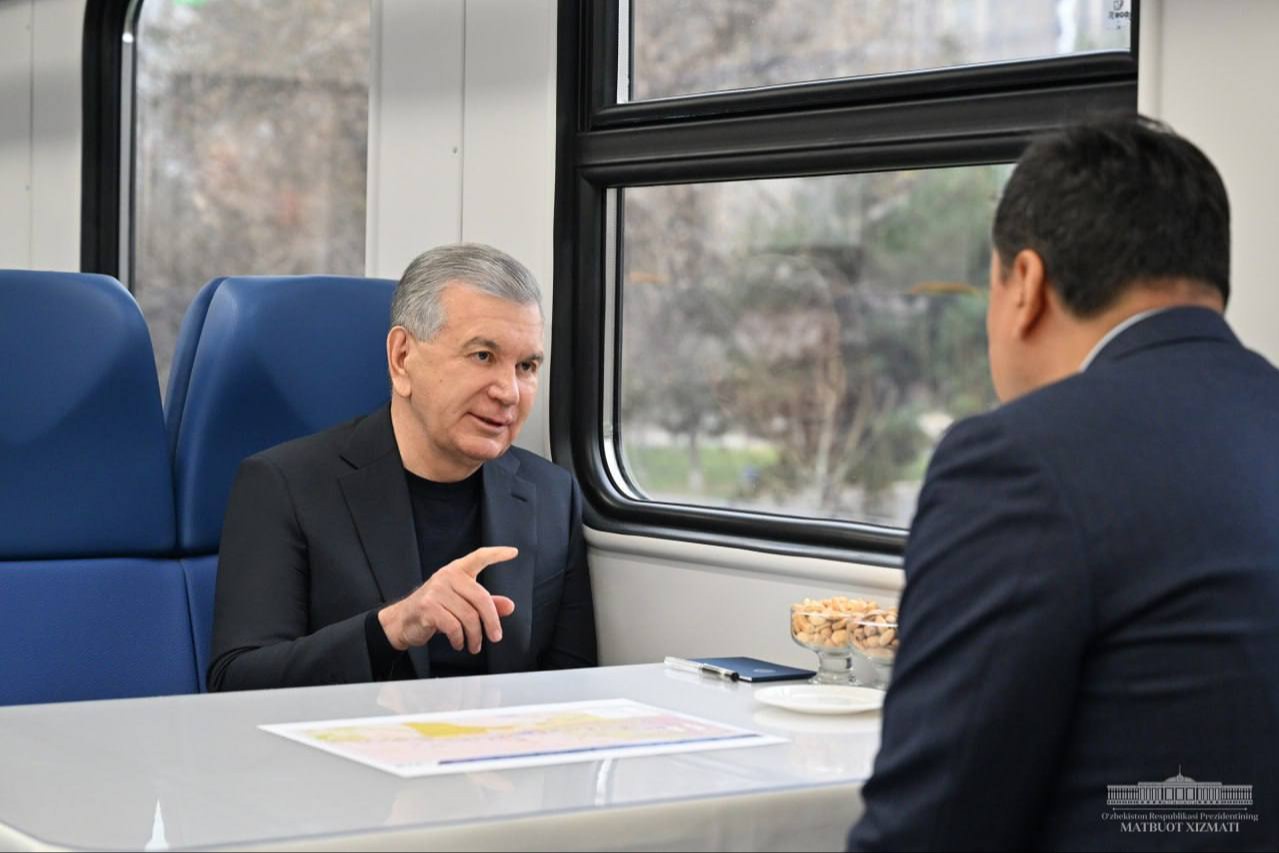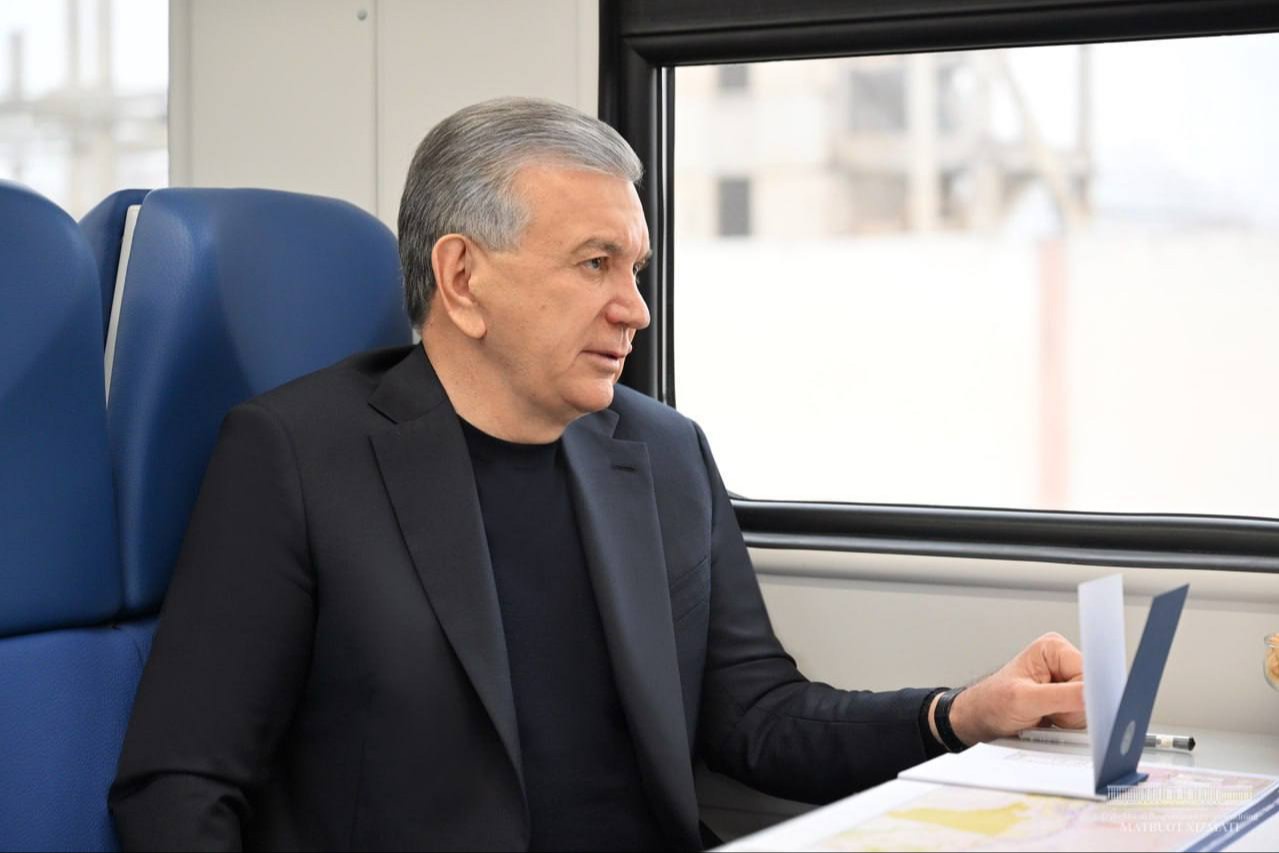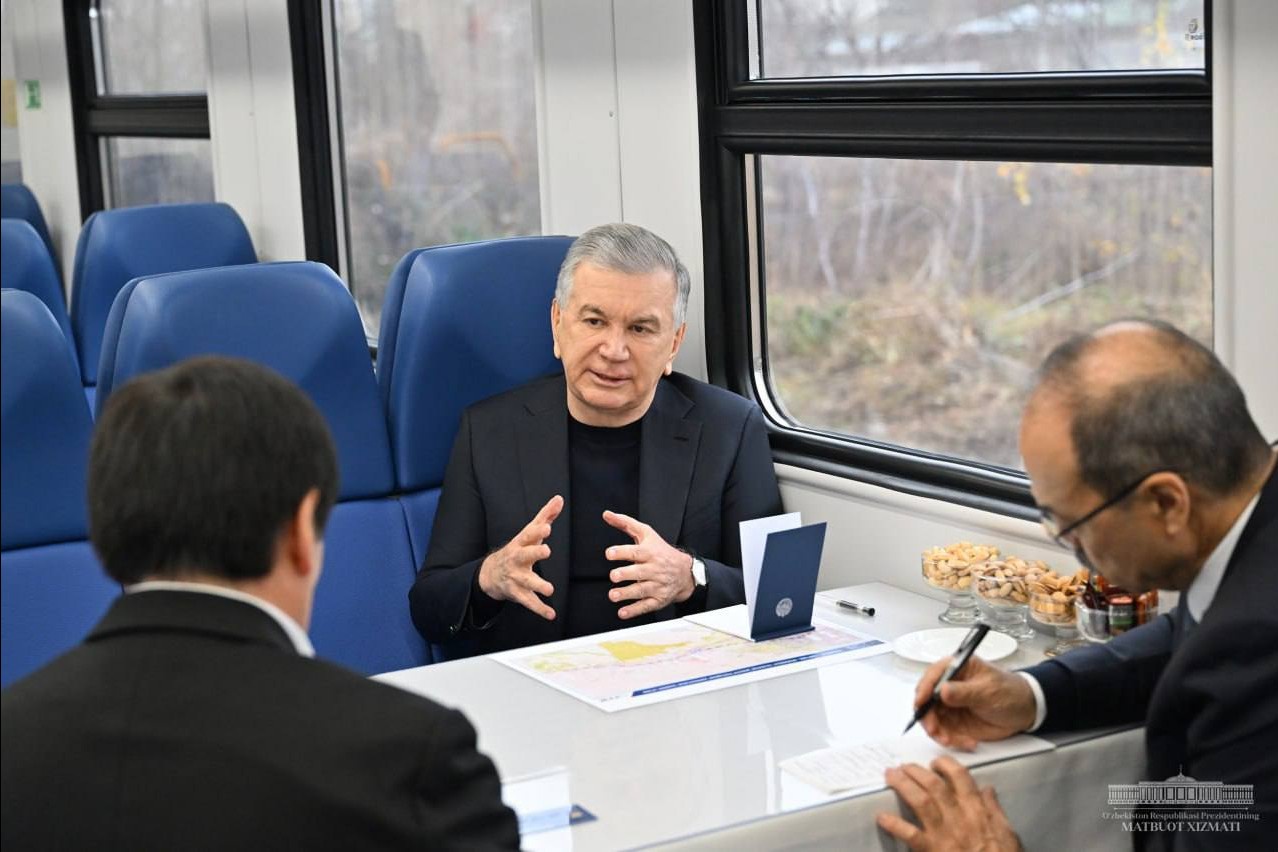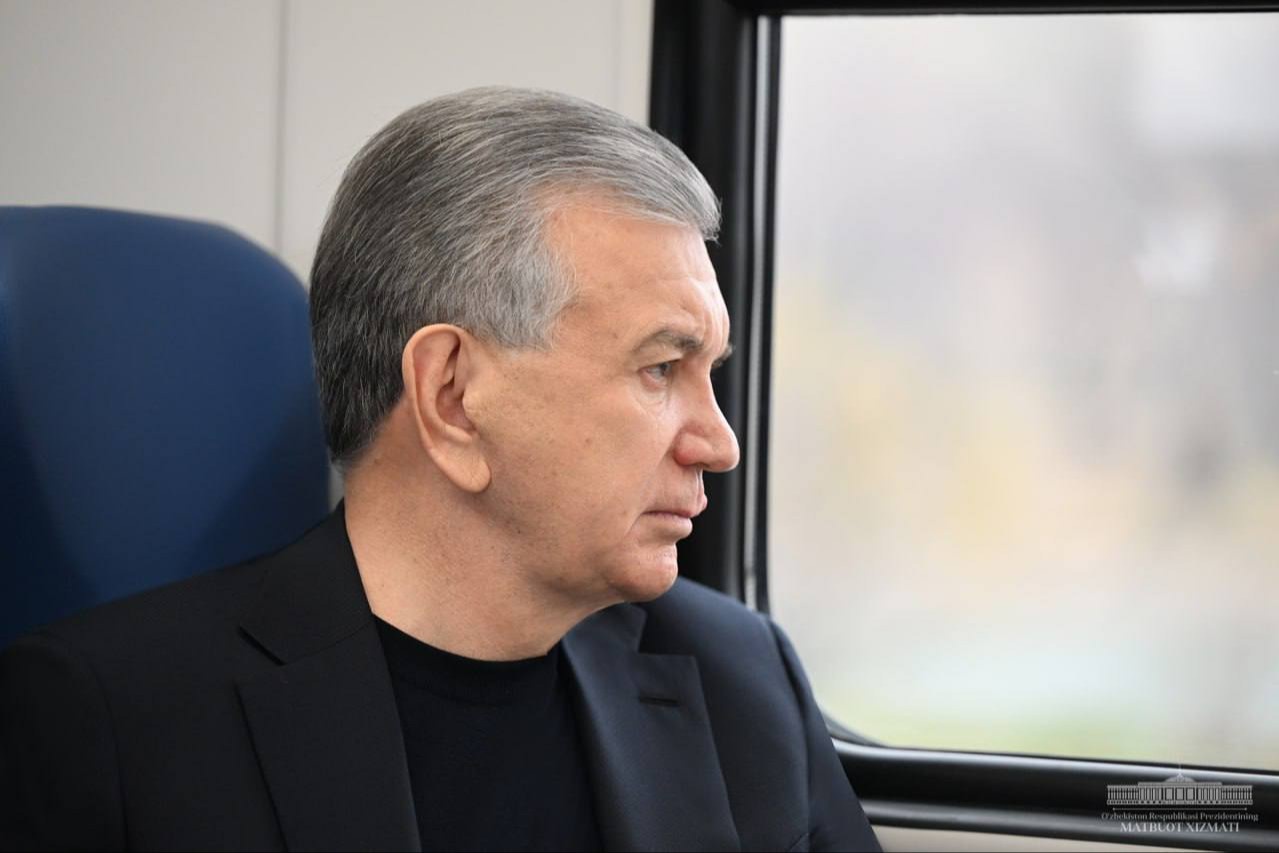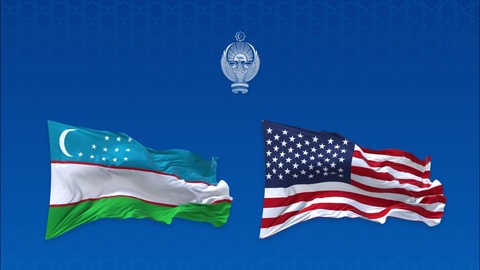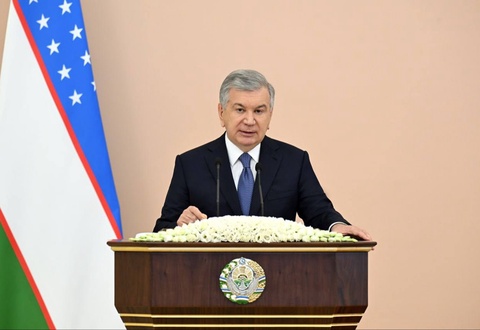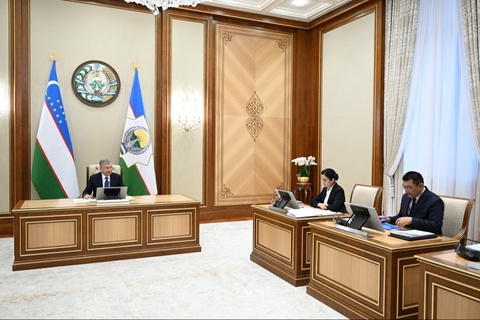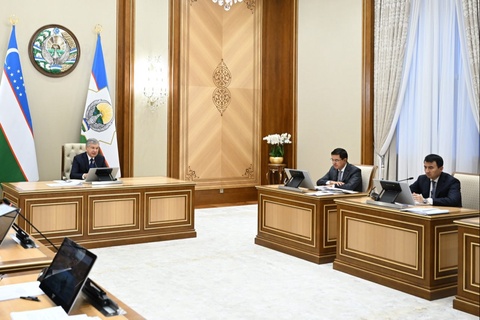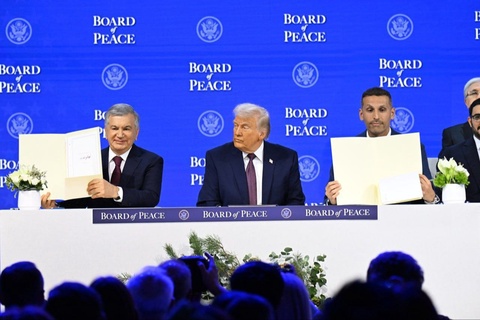In accordance with the resolution of the Head of state of October 10 last year, the Uzbekistan Railways JSC is transforming. Six independent enterprises engaged in infrastructure, carriage maintenance, and passenger transportation have begun operating within it.
The train fleet is also expanding. Particular attention is paid to improving the convenience for passengers and tourists. New trains were purchased, and the Afrosiyob electric train services between Tashkent and historical cities such as Samarkand, Bukhara, and Karshi have become more frequent.
Over the past time, more than 3 thousand kilometers of railways have been electrified in the country. Electrification of the Bukhara – Urgench – Khiva railway lines is in the final stage, and work on the Miskin – Nukus route continues at an accelerated pace.
An electrified road has also been built in the surrounding area of Tashkent, increasing the capacity of trains by 30 percent.
A new electric train has been operated on the Tashkent – Khojikent route. The President took a train ride to Khojikent and became acquainted with its capabilities.
The train cars are spacious and comfortable, with 586 passenger seats. Information boards and a fire safety system are installed. The train can reach speeds of up to 120 kilometers per hour, and there will be three trips per day in each direction.
During the trip, the Head of state heard reports on the development of railway infrastructure, improving passenger conditions, electrification of railways, and landscaping along the tracks.
The President instructed to include the territories adjacent to the railway between Tashkent and Khojikent in the renovation program for 2025 and put them in order. It was also noted that it is necessary to straighten the winding sections of the route to increase the number of daily express train trips and serve even more passengers.
Work within the framework of the “Yashil Makon” (Green Space) project was also discussed. The need for greening railway roadsides, planting drought-resistant plants using international experience in regions with limited water resources, and importing seedlings suitable for the local climate was noted.


